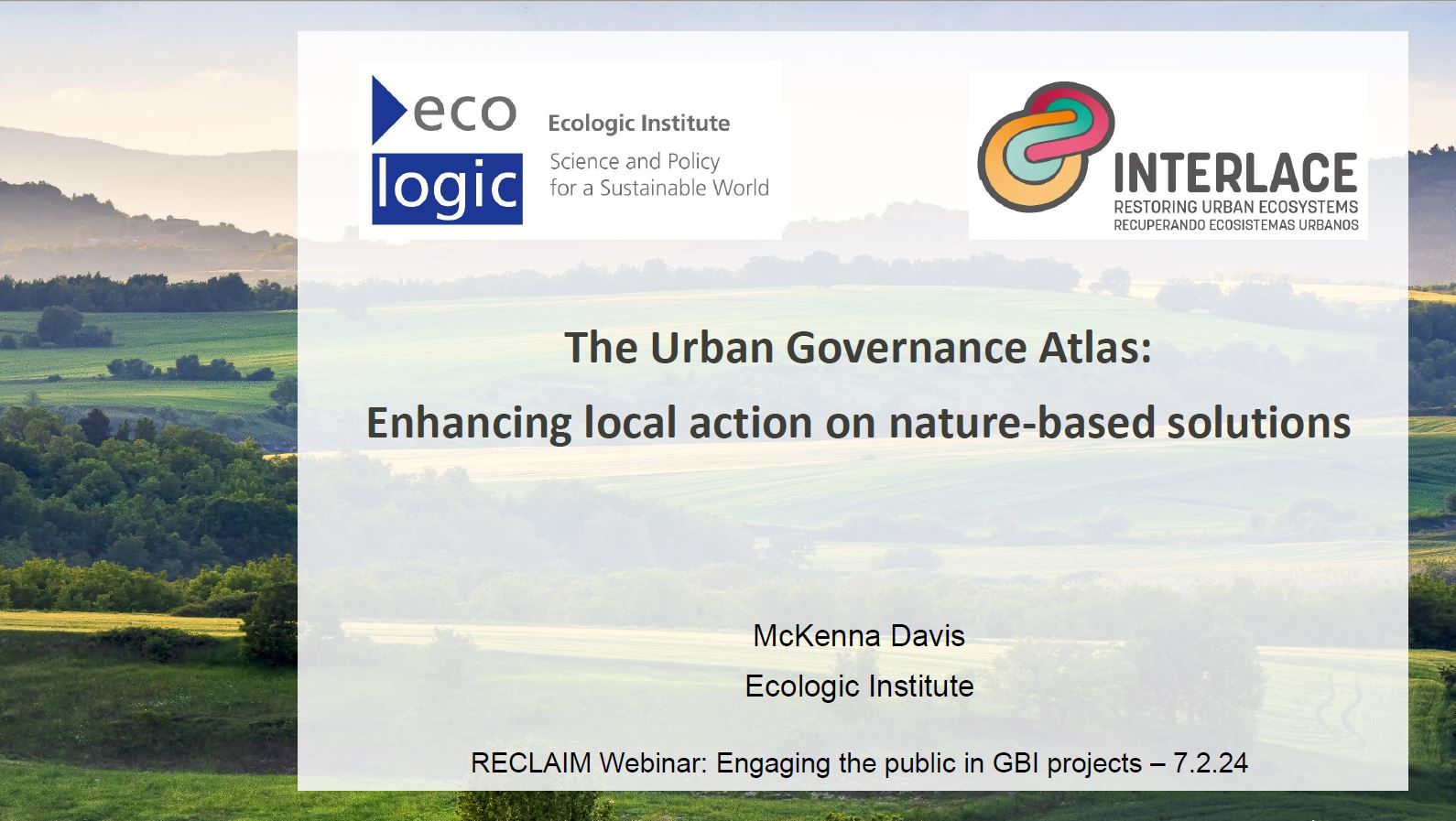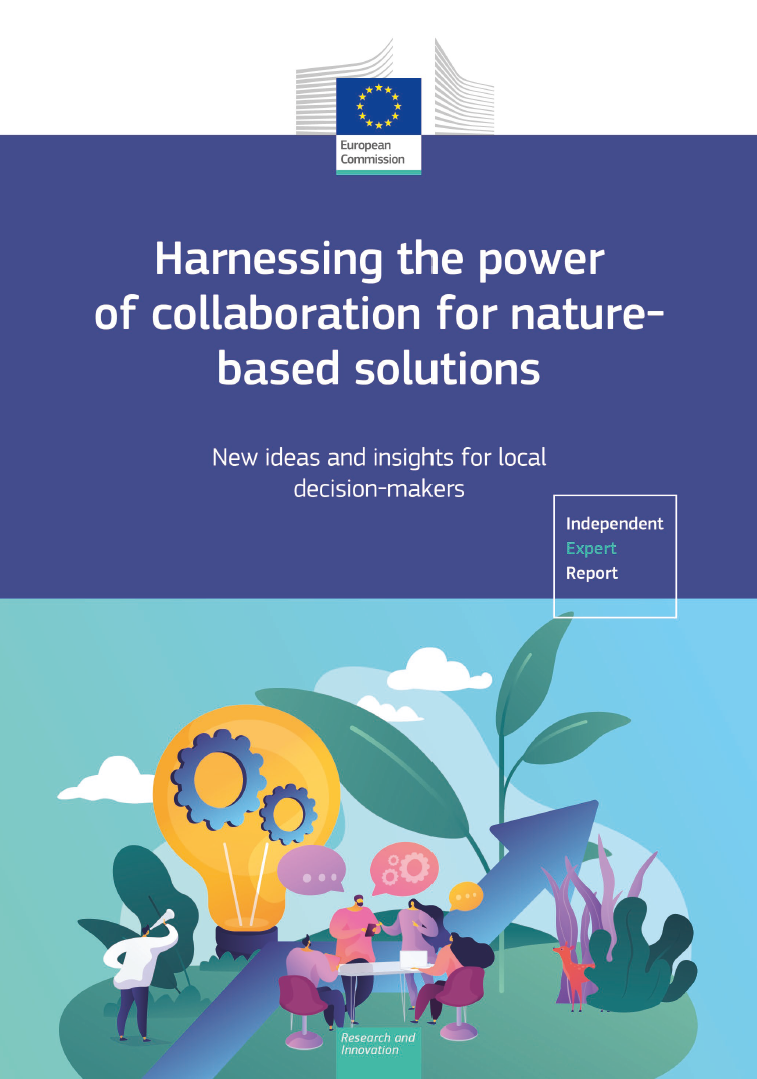
© Ecologic Institute 2024
Urban Governance Atlas
Enhancing local action on nature-based solutions
- Presentation
- Date
-
- Location
- Online
- Speech
McKenna Davis, Senior Fellow at Ecologic Institute and Coordinator of Nature-based Solutions, held a keynote at the online webinar ‘Engaging the public in GBGI projects’ on 7 February 2024. She spoke about inclusive governance and how to learn from real world policy practices to support co-governance in practice. She highlighted a number of good practice policy instrument examples, which are part of the Urban Governance Atlas developed by Ecologic Institute within the INTERLACE project.
This was the 21st RECLAIM webinar in a series aiming to share best-practices and encourage knowledge exchange between actors interested in using green-blue-grey infrastructure for making vulnerable living spaces more healthy, sustainable and resilient. The webinar included two keynotes and targeted the RECLAIM network members, encompassing practitioners, researchers, policymakers, businesses, charities and individuals active in this field.
McKenna Davis started by introducing the topic of inclusive governance, highlighting a notable shift in urban planning from ‘government’ to governance’. This transition recognizes the importance of involving diverse stakeholders, legitimizes community involvement, and fosters more equitable decision-making within municipal urban planning processes. On the basis of the 250 policy instruments included in the Urban Governance Atlas, she outlined pathways to support more inclusive governance in action and provided real world examples to inspire listeners.
A second presentation was held by Thuy Nguyen from Imperial College London, exploring public insights in consultation and co-design approaches. Thuy presented preliminary findings of an ongoing study investigating co-creation in the literature as well as in practice, building on several case studies. The presentations were followed by discussions with the audience, raising questions around the co-creation of the Urban Governance Atlas itself, opportunities for engaging the public in research, and co-creation strategies in practice.




